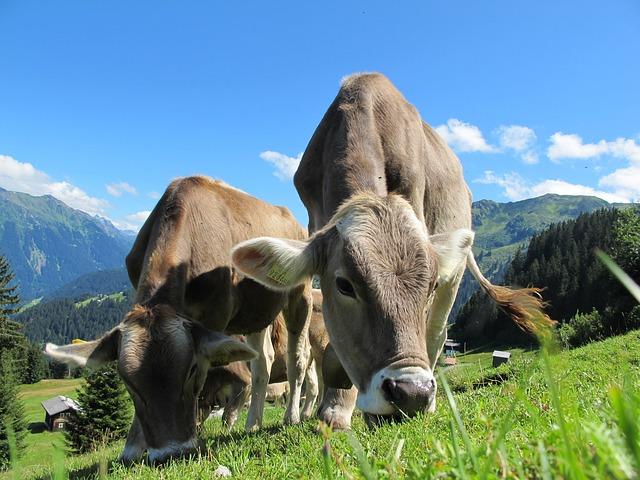Regenerative agriculture: a conservative path to sustainable prosperity
In the heartland of America, where the amber waves of grain have long symbolized our nation's agricultural might, a quiet revolution is taking root. Regenerative agriculture, often viewed through the lens of environmental activism, holds untapped potential as a cornerstone of conservative values: stewardship, economic independence, and the preservation of heritage.
Stewardship of the Land
Conservatives have always championed the responsible use of resources, understanding that the land is not just a tool for today but a legacy for future generations. Regenerative agriculture embodies this principle by focusing on soil health, which in turn fosters biodiversity, reduces erosion, and sequesters carbon naturally. This isn’t about following global trends; it’s about returning to the fundamental conservative ethic of stewardship. By nurturing the soil, we ensure that our agricultural lands remain productive for our children and grandchildren, aligning perfectly with the conservative ethos of leaving things better than we found them.
Economic Independence and Localism
The push towards regenerative practices promotes a decentralized food system, reducing reliance on both foreign oil for synthetic fertilizers and distant markets for food. Here lies an opportunity for economic revitalization of rural America. By adopting methods that decrease the need for expensive external inputs, farmers can achieve greater financial autonomy. This aligns with the conservative ideal of self-reliance, reducing the farmer’s dependency on government subsidies or multinational corporations, thereby reinforcing local economies and communities.
Cultural Heritage and Tradition
Regenerative agriculture isn’t a leap into the unknown but a return to the wisdom of our forebears. It respects the traditional farming methods that have been overshadowed by industrial agriculture. For conservatives, this is about preserving the cultural heritage of farming, not just as a livelihood but as a way of life that embodies American values. By integrating livestock, rotating crops, and reducing tillage, we’re not just farming; we’re maintaining a living tradition that teaches resilience, patience, and respect for the land.
National Security through Food Security
Food security is national security. By enhancing the resilience of our food systems through regenerative practices, we reduce vulnerabilities associated with reliance on global supply chains. Conservatives understand that a nation that can feed itself is inherently more secure. Regenerative agriculture increases yield stability in the face of climate variability, ensuring that America's breadbasket remains robust, thereby safeguarding our sovereignty.
Challenging the Status Quo with Innovation
While some view regenerative agriculture as a step back, it’s indeed a forward leap in innovation. It challenges the status quo of industrial farming not with protests but with results: healthier soils, cleaner water, and thriving ecosystems. Conservatives, often champions of free market innovation, should see regenerative agriculture as an entrepreneurial venture. It’s about creating new market niches for quality, locally-sourced, and sustainably produced food, appealing to both the consumer’s health consciousness and their patriotic duty to support American farmers.
A Call to Action
For too long, the narrative around environmental conservation has been dominated by the left, leaving conservatives skeptical. However, regenerative agriculture offers a bridge. It’s not about conceding to environmental alarmism but about leading with pragmatic, results-driven solutions that resonate with conservative principles.
Let’s advocate for policies that support farmers transitioning to regenerative practices, not through cumbersome regulations but through incentives that recognize the long-term public good they provide. Education and outreach should highlight how these practices align with conservative values, turning skepticism into advocacy.
Regenerative agriculture also presents a unique opportunity for economic revitalization in rural communities, often aligned with conservative values of self-sufficiency and local empowerment. By adopting regenerative practices, farmers not only contribute to environmental stewardship but also tap into niche markets demanding sustainably produced goods. This shift can lead to job creation, from farm labor to value-added processing enterprises, reinforcing local economies against the fluctuations of global markets. Moreover, it encourages a return to or preservation of family farming traditions, which are the backbone of rural America. This economic angle underscores a practical benefit of regenerative agriculture: it’s not just about ecological health but also about sustaining and growing the economic fabric of conservative-leaning communities through innovation, market differentiation, and a renewed connection between the land and its people.
In conclusion, regenerative agriculture isn’t merely an agricultural technique; it’s a political statement. It says we believe in the land’s ability to sustain us if we sustain it, in the strength of local communities, in the wisdom of our traditions, and in the security of our nation. Here lies an opportunity for conservatives to lead in a movement that doesn’t just conserve but regenerates — our land, our economy, and our heritage. Let’s cultivate not just crops, but a future where agriculture is a testament to what conservatism stands for: preservation, prosperity, and patriotism.

Image: Free image, Pixabay license.





